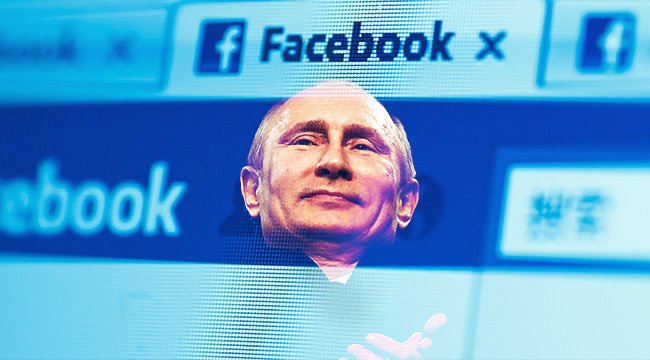
After months of hemming and hawing, Facebook finally admitted that Russian trolls had purchased ad space in order to spread propaganda during the 2016 election. The revelation could ultimately point to collusion between the Trump campaign, for the “divisive social and political messages,” which cost about $100,000, were reportedly targeted based on location after the Russians likely “received guidance from people in the United States.”
The ad buy, purchased by a Russian company with demonstrable connections to the Kremlin, consisted of about 3,000 ads bought by 470 dummy accounts over a period of time of about two years. And how many eyeballs does $100,000 get you on the biggest social media platform in the world? As many as 70 million pairs.
According to The Daily Beast, while Facebook admitted its platform was abused, it did not release the ads in question. Further, Facebook itself did not reveal the reach of the propaganda campaign. However, according to social media analysts, the average Facebook ad is $6 for 1,000 impressions. Using that metric, $100,000 would get the Kremlin 17 million views. So where do those bigger numbers come from?
But that average hides a lot of complexity, and the actual rate can range from $1 to $100 for 1,000 impressions on an ad with pinpoint targeting. Virality matters too. Ads that get more shares, likes, and comments are far cheaper than boring ads that nobody likes, and ads that send users to Facebook posts instead of third-party websites enjoy an additional price break. Finally, there are network effects, which can vastly multiply the number of users who see a promoted Facebook post.
Simply put, if a post goes viral, “you buy one impression and you get 20 additional impressions.” After some trial-and-error, it’ll become clear which ads are working with your susceptible audience and which ones are not.
“One out of every 100 posts, you’re going to get that home run,” saidDennis Yu, CTO and co-founder of BlitzMetrics, an ad agency that deals exclusively with Facebook ads. “Then you’re going to boost the heck out of that sucker. You’re going to put $10,000 bucks on it. And Facebook’s algorithm already knows who to show it to, like the friends of the people who already liked it… It’s a risk-free lottery. The minimum cost is $1 per day.”
It’s startling to think that a campaign like that could be done for such a relatively small amount, especially since Facebook didn’t make all the data public, but there is a silver lining: Facebook turned their findings over to special counsel Robert Mueller.
(Via The Daily Beast)
